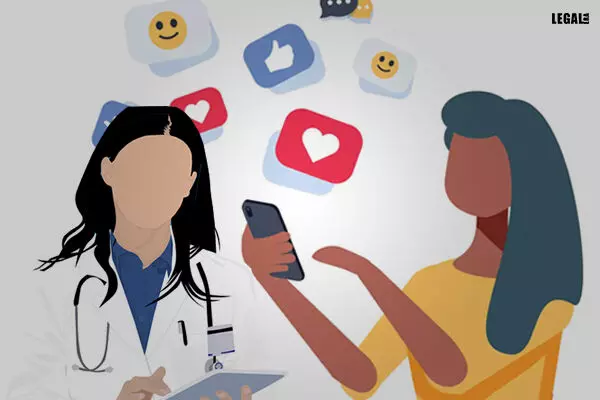- Home
- News
- Articles+
- Aerospace
- Artificial Intelligence
- Agriculture
- Alternate Dispute Resolution
- Arbitration & Mediation
- Banking and Finance
- Bankruptcy
- Book Review
- Bribery & Corruption
- Commercial Litigation
- Competition Law
- Conference Reports
- Consumer Products
- Contract
- Corporate Governance
- Corporate Law
- Covid-19
- Cryptocurrency
- Cybersecurity
- Data Protection
- Defence
- Digital Economy
- E-commerce
- Employment Law
- Energy and Natural Resources
- Entertainment and Sports Law
- Environmental Law
- Environmental, Social, and Governance
- Foreign Direct Investment
- Food and Beverage
- Gaming
- Health Care
- IBC Diaries
- In Focus
- Inclusion & Diversity
- Insurance Law
- Intellectual Property
- International Law
- IP & Tech Era
- Know the Law
- Labour Laws
- Law & Policy and Regulation
- Litigation
- Litigation Funding
- Manufacturing
- Mergers & Acquisitions
- NFTs
- Privacy
- Private Equity
- Project Finance
- Real Estate
- Risk and Compliance
- Student Corner
- Take On Board
- Tax
- Technology Media and Telecom
- Tributes
- Viewpoint
- Zoom In
- Law Firms
- In-House
- Rankings
- E-Magazine
- Legal Era TV
- Events
- Middle East
- Africa
- News
- Articles
- Aerospace
- Artificial Intelligence
- Agriculture
- Alternate Dispute Resolution
- Arbitration & Mediation
- Banking and Finance
- Bankruptcy
- Book Review
- Bribery & Corruption
- Commercial Litigation
- Competition Law
- Conference Reports
- Consumer Products
- Contract
- Corporate Governance
- Corporate Law
- Covid-19
- Cryptocurrency
- Cybersecurity
- Data Protection
- Defence
- Digital Economy
- E-commerce
- Employment Law
- Energy and Natural Resources
- Entertainment and Sports Law
- Environmental Law
- Environmental, Social, and Governance
- Foreign Direct Investment
- Food and Beverage
- Gaming
- Health Care
- IBC Diaries
- In Focus
- Inclusion & Diversity
- Insurance Law
- Intellectual Property
- International Law
- IP & Tech Era
- Know the Law
- Labour Laws
- Law & Policy and Regulation
- Litigation
- Litigation Funding
- Manufacturing
- Mergers & Acquisitions
- NFTs
- Privacy
- Private Equity
- Project Finance
- Real Estate
- Risk and Compliance
- Student Corner
- Take On Board
- Tax
- Technology Media and Telecom
- Tributes
- Viewpoint
- Zoom In
- Law Firms
- In-House
- Rankings
- E-Magazine
- Legal Era TV
- Events
- Middle East
- Africa
Doctors and Social Media Influencers to pay 10% TDS on Freebies from July 1

Doctors and Social Media Influencers to pay 10% TDS on Freebies from July 1
The Union Budget 2022 introduced newer provisions to avoid tax leakage from the system. Central Board of Direct Taxes (CBDT) has changed the rules related to Tax Deducted at Source (TDS). Effective from July 1, doctors and social media influencers will be required to pay TDS of 10% on the free samples they receive from the businesses for sales promotion.
The provision was introduced in the Finance Act of 2022 to widen the tax base and to ensure that those who benefit from such sales promotion expenditure by businesses report it in their tax returns and pay tax on what the benefit is worth.
In the event the equipment given to social media influencers as a part of marketing is retained by them, they would be liable to pay the TDS. However, TDS will not apply if it is returned to the company.
"Whether this (the product given for sales promotion activity in social media) is benefit or perquisite will depend upon the facts of the case. In case of benefit or prerequisite being a product like a car, mobile, outfit, cosmetics, etc, and if the product is returned to the manufacturing company after using for rendering service, then it will not be treated as a benefit or prerequisite for section 194R of the Act (the TDS provision)," CBDT said.
If the product is retained, then it will be in the nature of benefit or prerequisite, and tax is required to be deducted accordingly under section 194R of the Act, CBDT said.
CBDT has clarified that no tax is required to be deducted under section 194R of the Income Tax Act on sales discounts, cash discounts, and rebates allowed to customers. However, this exception does not apply to free samples. Free medicine sample provided by a company to a doctor who is an employee of a hospital, or is a consultant, is also covered by the TDS provision. The TDS has to be deducted from the hands of the hospital on account of the doctor being an employee of the hospital. The hospital may subsequently treat this as a benefit given to the doctor, deduct income tax on it and claim a deduction for this as a salary expenditure.
"In such a case it would be the first taxable in the hands of the hospital and then allowed as deduction as salary expenditure. Thus, ultimately the amount would get taxed in the hands of the employee and not in the hands of the hospital. The hospital can get a credit of tax deducted under section 194R of the Act by furnishing its tax return," CBDT said.



